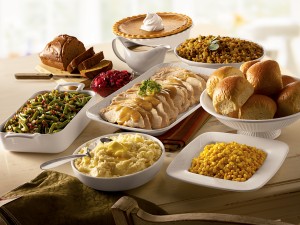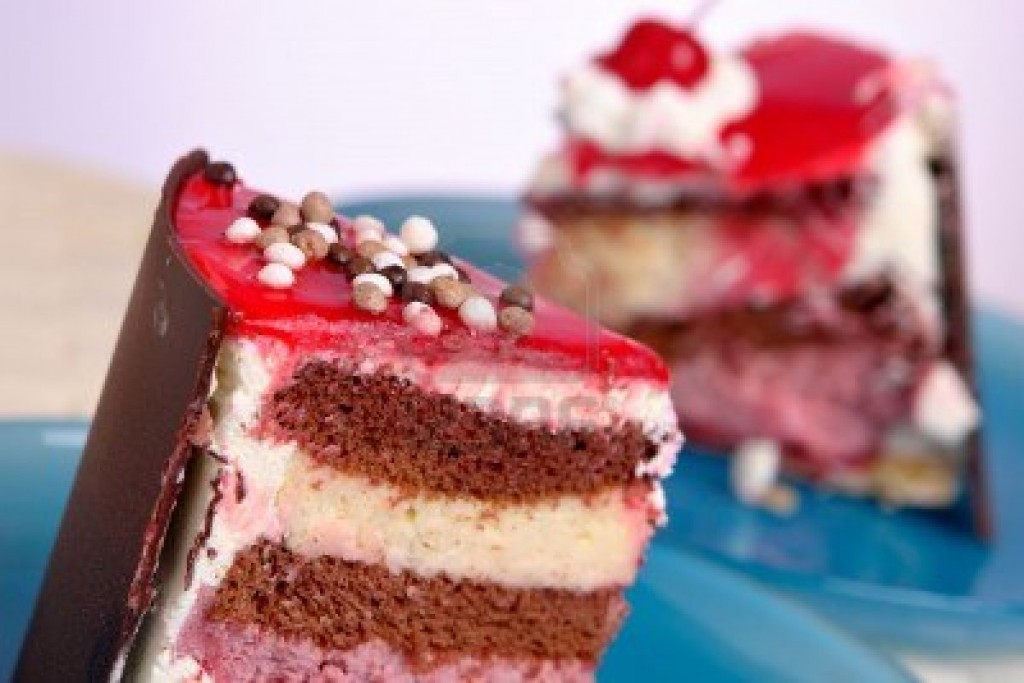What should you eat before the big feast? (hint: eggs.) And don’t try to compensate in advance by eating less, this will only make you hungrier. Furthermore, foods in your regular diet are probably healthier than holiday fare, so you definitely don’t want to eat fewer healthy foods to make room for empty calories.
Tip 1.
Variation in the effects of three different breakfast meals on subjective satiety and subsequent intake of energy at lunch and evening meal (Fallaize et al., 2012)
Participants were served only one of these for breakfast: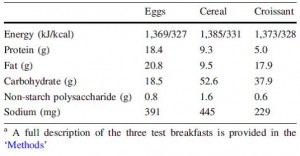
And given unlimited amounts of these for lunch and dinner: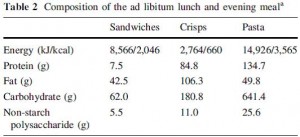
At breakfast, everyone ate different foods but the same number of calories (by design). After lunch and dinner, everyone ate the same foods but as much as they wanted (“ad libitum”)… how much you ask?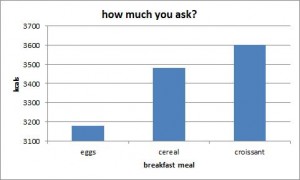
Eggs FTW. N.B. this was a three-way crossover.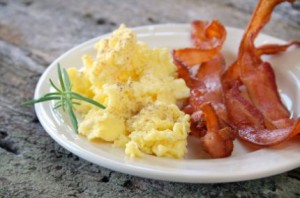
Why did they eat less? Was it the higher protein? lower carbs
? Some studies suggest high protein is better than low protein (eg, Douglas et al., 2013); another showed eggs were better than bagels (Ratliff et al., 2010); and yet another suggested more bacon
(Meinert et al., 2012). or prunes (Farajian et al., 2010)? You be the judge.
Tip 2. Miscellaneous
This might be one of the only times when such tricks like drinking a lot of water and taking a fiber supplement prior to the meal could help make you feel fuller faster. Those techniques don’t do much for weight loss in the long run, but might help transiently curb overconsumption.
Tip 3. Exercise
Exercising before dinner might favor shuttling of the excess nutrients toward oxidation (eg, Bennard and Doucet, 2006; Aoi et al., 2012). It might even make you eat less (eg, Jokisch et al., 2012; Martins et al., 2007)… or not (eg, King et al., 2012; King et al., 2010).
IMHO, in general, eating prior to exercise is more beneficial than after*. But when it comes to a big meal, exercising after also has some benefits. For example, one study showed it blunted the rise in blood glucose and insulin, which bodes favorably for body composition (Hashimoto et al., 2012). Another study showed exercising after breakfast resulted in slightly greater food intake during lunch, but not enough to make up for the energy deficit: exercisers burned 300 more kcal but only ate 150 more (Martins et al., 2007). Admittedly however, I don’t think that energy balance differential is very meaningful; participants in the Martins study had a negative energy balance of 150 kcal; if your slice of cake was infinitesimally bigger than another, then that difference will be cancelled out.
My advice: don’t give those extra calories the time to be deposited into fat tissue; exercise after dinner. Have a cuppa and help clean up. Go for a walk. You don’t have to exercise but you have to get off your ass.
*edit: Nutrient timing, Op. 101 <– more reasons to exercise after eating

